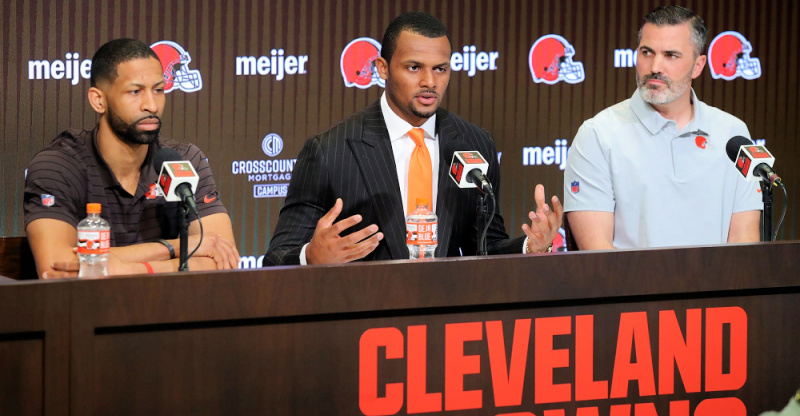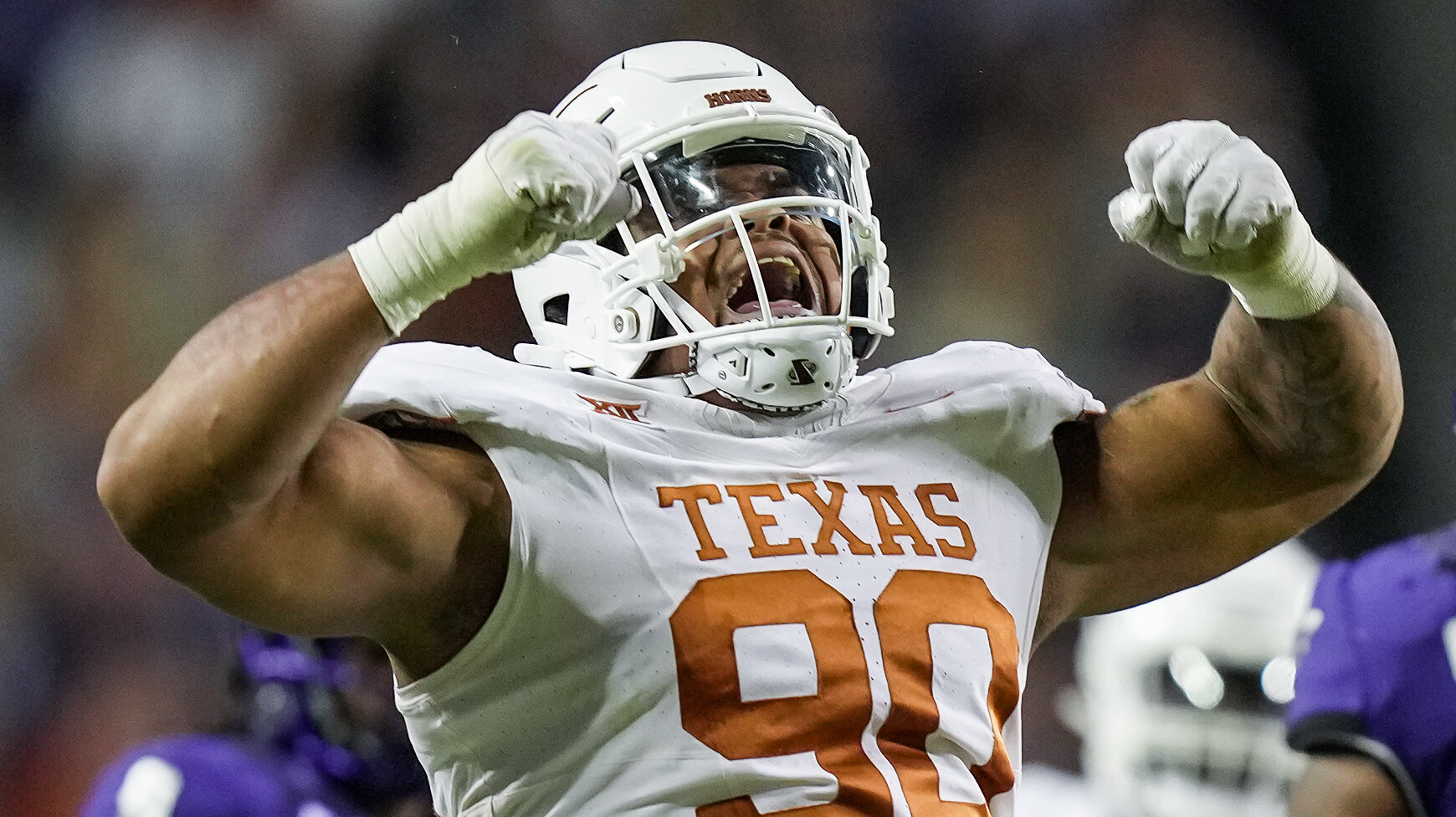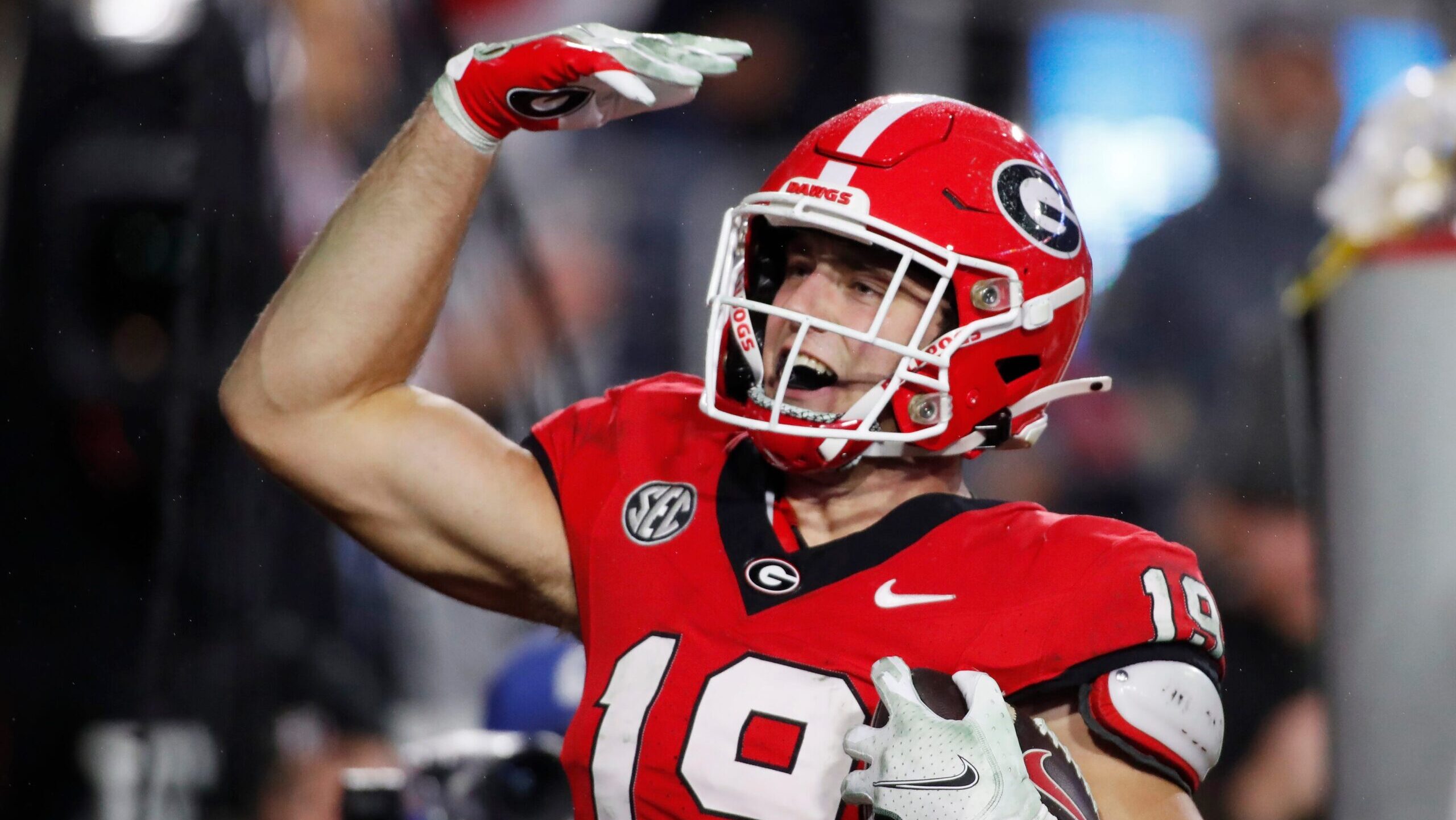Analysis
6/30/22
5 min read
Examining the Deshaun Watson Case Through the Eyes of an Arbiter

As Deshaun Watson, the NFL, and NFLPA enter their third day of disciplinary hearings, it is interesting to consider Watson’s situation and disciplinary decision from the perspective of the NFL’s impartial arbitrator, Judge Sue L. Robinson. It is particularly compelling because this is the first time under the Personal Conduct Policy that a disciplinary decision will be made by someone other than the Commissioner or his designee.
One key change made in the 2020 Collective Bargaining Agreement was a provision for the NFL and NFLPA to jointly select an impartial arbitrator to adjudicate discipline under the Personal Conduct Policy. Judge Robinson was selected by the NFL and NFLPA as the first such arbitrator. She is a retired Judge of the United States District Court, having served the District of Delaware for 26 years following her nomination by President George H.W. Bush in 1991, including seven years as Chief Judge, the first woman to hold that position.
The job of Judge Robinson is to understand the particular facts and circumstances in Deshawn Watson’s case, how they may have violated the Personal Conduct Policy, and what punishment, if any, is merited.
The first two are relatively straightforward. She will hear information throughout the extensive hearing that will assist in establishing the details of Watson’s conduct and determine whether it was prohibited by the policy, which includes fourteen categories ranging from the relatively specific (“Assault and/or battery, including sexual assault or other sex offenses”) to the very broad. (“Conduct that undermines or puts at risk the integrity of the NFL, NFL clubs, or NFL personnel”).
The more difficult and clearly more controversial part of Judge Robinson’s job is the final step of deciding if discipline is merited, and how harsh it should be. This is where the NFLPA, which has been seeking this change to the CBA for decades, hopes that the arbitrator behaves like a judge and not a commissioner.
Foundational to the American legal system is the doctrine of stare decisis, Latin for “to stand by things decided.” Judges use historical court decisions as authorities, or precedents, for deciding future cases. Precedent is designed to ensure that individuals in similar circumstances are treated similarly and insulated from the predilections or peculiarities of any particular judge.
The NFL has had policies governing off-field behavior of employees since 1997. It was enhanced substantially in both 2007 and 2014 and is reviewed and updated regularly. Critics of the disciplinary process under the Personal Conduct Policy have complained that precedent has had little value and that standards are unclear and unevenly applied despite the NFL’s continued revisions. Ideally for all parties involved — including the NFL — the role of an independent arbitrator will accelerate the creation of a clearer framework that becomes strong enough to withstand any public relations, financial, or personal pressures of an immediate moment.
Once Judge Robinson is satisfied that she’s heard all of the facts, many prior decisions under the Personal Conduct Policy should be relevant in some manner to determining an appropriate punishment for Watson.
In its 2014 revision, the League established a baseline of a six-game suspension for violations involving assault, domestic violence, and sexual assault with additional discipline possible for aggravating circumstances. One such example of a punishment of a player under this standard is Ezekiel Elliott.
There are also non-player examples to consider. The 2018 personal conduct policy states:
“Ownership and club or league management have traditionally been held to a higher standard and will be subject to more significant discipline when violations of the Personal Conduct Policy occur.”
The NFLPA, represented by the NFL’s longtime legal nemesis Jeffrey Kessler, has already indicated it will raise examples of owner conduct, including that of Robert Kraft. Kraft was charged with soliciting prostitution in 2019 but was not disciplined after video police said showed the illegal act was ruled inadmissible and charges were dropped. Even if Watson and the NFLPA did not press the case of Kraft as precedent, Judge Robinson would be appropriate in evaluating it as such given many of the apparent factual parallels.
Reporting from the hearing suggests the NFL is advocating an indefinite suspension for Watson of at least one year — a discipline viewed by the NFLPA as unprecedented for a defendant who was not charged criminally (two Houston grand juries declined to indict Watson). While the Personal Conduct Policy is clear that “even if the conduct does not result in a criminal conviction,” relevant cases without criminal charges include those of Elliott and Kraft as well as Ben Roethlisberger, whose six-game suspension after accusations of sexual assault was reduced to four.
Another aspect of this case that has drawn attention is Watson reaching settlement with 20 of 24 women who filed civil claims against him. It is unlikely that the settlements themselves will impact the judge’s decision, particularly since they do not include any admission of guilt by Watson. The Personal Conduct Policy deals with the conduct itself, not how the disputes were resolved, and the Judge will give far greater weight to the direct evidence presented during the hearing.
Finally, Judge Robinson will consider precedent as important in reducing the likelihood of an appeal by either party. Few judges in any venue like to be overturned on appeal. In this instance, the specter of an appeal looms larger given that the higher court remains Commissioner Goodell under the 2020 CBA. It is in the best interest of the League and the process to have a ruling that can be fairly viewed as objective in light of the history of penalties levied under the Policy.






